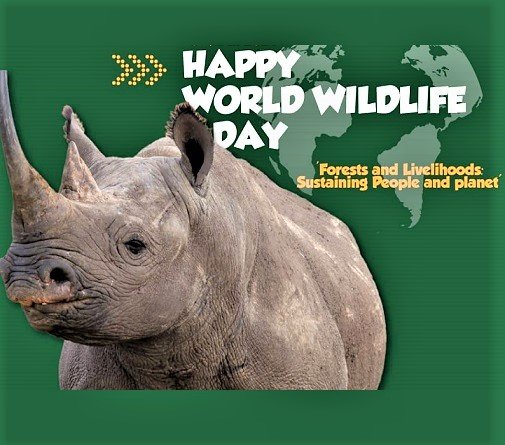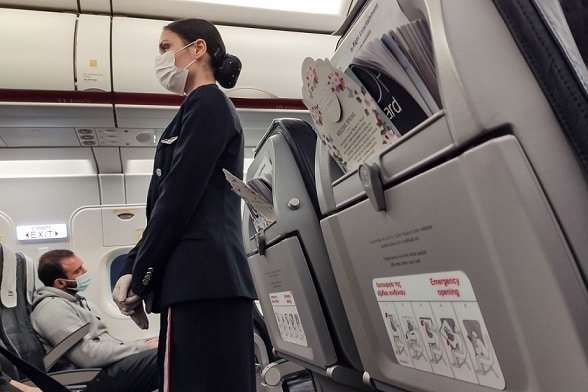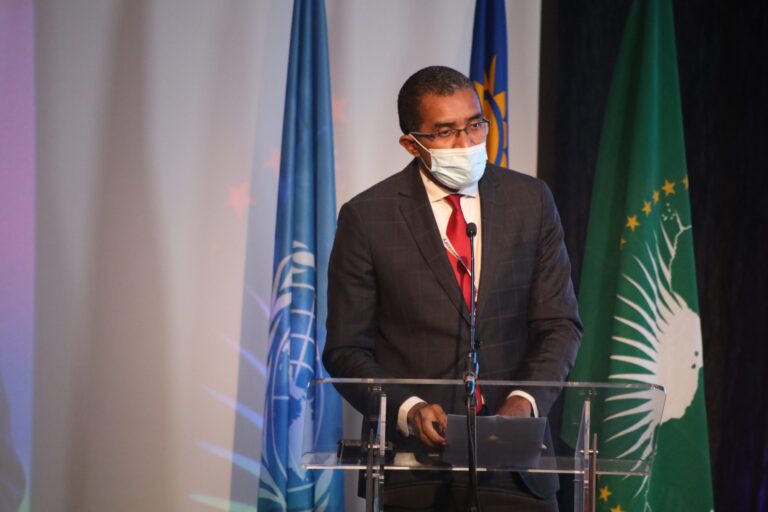
COVID hurting Africa wildlife and tourism
The COVID-19 outbreak in tourist source markets of Europe and the United States has increased wildlife plight after revenue from tourists booked to visit Africa fell from last year through early this year, conservationists observed .
- In East Africa, where wildlife is the source of income for tourists, various measures are underway to protect wildlife in this part of Africa.
- The World Wildlife Fund (WWF) estimates the illegal trade in wildlife to be worth about $ 20 billion a year.
- Gorilla conservation in Rwanda is considered a key approach to protecting tourism, which has made this African country the best and most upscale vacation destination on the African continent.
Countries in East Africa celebrated World Wildlife Day as they watched the decline in the numbers of African wildlife species caused by a variety of causes including poaching, disease, increasing trade in illegal wildlife products, habitat destruction, effects of climate change and yes, COVID-19.
The World Wildlife Fund (WWF) estimates the illegal trade in wildlife to be worth about $ 20 billion a year. Africa is the hardest hit continent losing its elephants, rhinos and now pangolin, which are traded from Africa. Africa’s iconic wildlife species are being illegally commercialized by an increasingly sophisticated poaching syndicate of gangs of wildlife criminals from Southeast Asia, where wildlife products tend to be priced higher.
Against this background, several African countries are trying to improve their tourist attractiveness through unique, sustainable exploration of wild animals through the use of high-tech solutions to fight crime against wild animals. In East Africa, where wildlife is the source of income for tourists, various measures are underway to protect wildlife in this part of Africa.
Technology has enabled conservationists to better understand wildlife and the threats they face. In Kenya, the Ol Pejeta Conservancy, in cooperation with Fauna and Flora International (FFI), Liquid Telecom and Arm, set up a state-of-the-art laboratory for animal welfare technology in 2019.
Ol Pejeta is home to two of the last remaining white rhinos in the world and is taking the lead in protecting black rhinos. Rhinos in this house can now be fitted with real-time tracking horn implants, replacing the bulky traditional collars. Conservationists can now monitor all animals 24 hours a day and track their health, body temperatures and migration patterns.
In cooperation with nature conservation projects in Kenya, WWF supports the installation of cameras with thermal imaging technology to prevent poaching of rhinos in 10 parks in Kenya. The cameras have thermal sensors that can detect tiny differences in temperature, making it easy to spot experienced poachers who often work at night. This technology with special cameras was tested in 2016 in Maasai Mara National Park with 160 poachers arrested in two years of its operation. This comes from reports on the protection of the wildlife from Nairobi.
Gorilla conservation in Rwanda is considered a key approach to protecting tourism, which has made this African country the best and most upscale vacation destination on the African continent. Tourists visiting the gorilla hotspots in Rwanda have increased by over 80 percent over the past 10 years.
Tanzania has changed wildlife protection from civil to paramilitary tactics in the past 4 years. The positive development has led to an increase in wildlife in important national parks, game reserves and controlled areas. Paramilitary operating tactics have arrested poachers and other crime syndicates against wild animals in Tanzania.
Polar Tourism recognized the potential of nature conservation for the development of tourism in Africa and held a virtual discussion on January 24th this year in collaboration with the African Tourism Board (ATB) to discuss and then exchange views that aim to achieve the Promote wildlife conservation in Africa. A number of new initiatives to promote tourism in post-COVID-19 Africa, with a focus on new projects that would attract domestic, intra-African and international tourists, were discussed at the virtual meeting.
Former Minister of Tourism of Zimbabwe, Dr. Walter Mzembi said in his virtual presentation that wildlife crime, particularly poaching and trade in wildlife products in all forms, has put a number of animal species in the endangered category, some of which are nearing extinction or extinct lists. Dr. Mzembi said the negative impacts of poaching and wildlife trade are affecting not only the growth of wildlife tourism, but also the sustainability and viability of wildlife farming, the cost to parks and reserve owners in protecting wildlife, and the hospitality industry as a major beneficiary of wildlife management across the board Africa. Transnational cooperation and breaking international syndicates are key to poaching to ensure the sustainability of tourism anchored by wildlife in Africa, noted Dr. Mzembi in his discussion.
ATB is based in Pretoria, South Africa and focuses on permanent plans that can encourage and then support the development of tourism in Africa, with an emphasis on wildlife conservation for sustainable tourism development.
World Wildlife Day is held on March 3rd each year to promote the conservation and protection of wildlife around the world.
#rebuildingtravel



